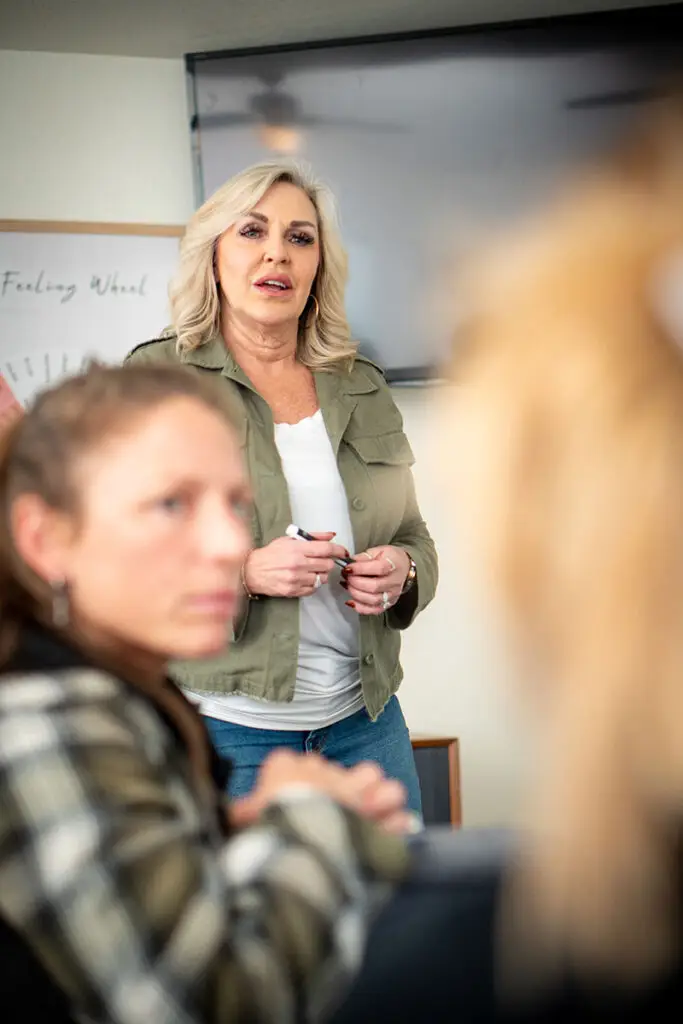A high-intensity outpatient treatment program is just what it sounds like. This program is better known as Partial Hospitalization Programming or PHP. It is usually a 2-4 week time frame where an individual participates in therapeutic groups 5 days a week. Because this program is “high intensity” the daily programming is for 6 hours and is designed to give you structure, education, support, and a footing in recovery. The structure and hours are the same as other PHP programs. The American Society of Addiction Medicine (ASAM) has renamed this program in their 4th edition changes that released in October of 2023. Over the next year or so facilities will be changing the language used to describe this structured level of care.
 Our HIOP is one of the levels of care we offer and arguably one of the more important ones. It serves as a transitionary space between higher levels of structure, and what will eventually be an independent life from treatment. This transitionary space offers the comradery of peers, examples of other individuals in the same space and learning about recovery at the same pace, and continued education to support preferred decision making in recovery.
Our HIOP is one of the levels of care we offer and arguably one of the more important ones. It serves as a transitionary space between higher levels of structure, and what will eventually be an independent life from treatment. This transitionary space offers the comradery of peers, examples of other individuals in the same space and learning about recovery at the same pace, and continued education to support preferred decision making in recovery.
The location of our HIOP program is down the street from the residential facility. If you participated in our detox or residential services, the area will feel familiar. The location is also right by Back Bay in Newport Beach. You couldn’t get better views of the Back Bay. The vastness of the bay, the salt-water air, and the nature preserve across the street just add to the experience of healing. You can see the bay from the group room, our building is on one side of the street and the bay on the other.
Our HIOP is similar to others in the structure and programming. What is different for us is the compassion and care that goes into the curriculum development. We aim to work against societal narratives placed on women. We push back on traditional therapies that tell clients something is wrong with their thinking or pretend that we can prevent return to use with a “relapse prevention plan.” We work hard to incorporate Narrative practices that position the individual in the place of telling their story. We try to listen with curiosity and ask questions that haven’t been asked before. If you are wondering about Narrative practices, check out our therapies page. We are so happy to share.
Benefits of a High Intensity Outpatient Program
Access to Therapies
Individual, group, and family therapy are all available through HIOP.
These therapies can assist women in better understanding what keeps the addiction close and learn ways to keep the addiction at bay.
Access to Social Support
Access to social support is provided via high intensity outpatient programs. The presence of therapists and peers in recovery may offer moral support and empathy. It also includes access to support groups and other activities to help people stay motivated and engaged while undergoing treatment.
Conducive Environment
Partial hospitalization programs provide a regulated environment with a predetermined schedule of therapies and activities. This framework assists clients in concentrating on their rehabilitation and adhering to their treatment plan.
Working With Professionals
Due to spending a significant amount of time in the facilities of the program, you will have a variety of professionals to speak to each day. This provides you with complete support tailored to your specific requirements, such as individual therapy.
Access to Psychiatric Care
Access to psychiatric care is provided via HIOP at the treatment center. This includes medications for opioid use disorder (MOUD), medication assisted treatment (MAT), medication monitoring, and medication support for the mental health.
Who Benefits From HIOP
Here are some people who benefit from PHP:
Families
Families – Our HIOP provides family therapy as indicated in the treatment plan as well as offers a weekly family education and family support group.
People with Dual Diagnosis
HIOP attends to both the substance use disorder and the mental health Disorders. We can attend to experiences of physical dependence, depression, anxiety, and trauma. We will Do our best to help you take a stand against the effects of mental health and substances in your life.










